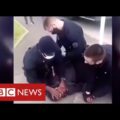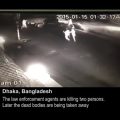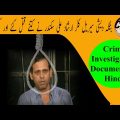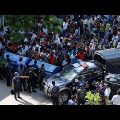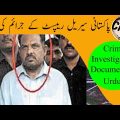JANUARY 4, 2022, 5:13 PM
At midnight on May 26, 2018, Ekramul Haque’s daughters were trying to reach their father, who had left home three hours earlier and had still not returned.
Haque was an elected council member in Cox’s Bazar’s Teknaf municipality, a southeastern Bangladeshi town bordering Myanmar. To the outside world, Teknaf and surrounding subdistricts in Cox’s Bazar are best known for hosting nearly a million Rohingya refugees, but domestically, it is also a major entry point for narcotics (mostly yaba—a combination of methamphetamine and caffeine) sourced from Myanmar.
When Haque’s daughters reached him, he was audibly distressed, but he was also trying to comfort them. “Abbu [dad], you seem to be crying,” one of his confused daughters said. Unsettled, they alerted their mother, Ayesha Begum, who joined in subsequent calls.
Haque was at that time in the custody of the Rapid Action Battalion (RAB), an elite Bangladeshi police unit estimated to have killed more than 1,100 people between 2004 and 2020. He would soon be executed, joining hundreds of others killed by authorities in a bloody election-year anti-drug campaign. After his death, the RAB produced a typical press release, claiming that Haque had been killed in a supposed gunfight during a drug raid.
The wording of the statement was characteristically contradictory: The description of the events leading to his violent death made his killing sound inadvertent, but allegations against him—that he was a top drug dealer and a “yaba godfather”—are used to imply he deserved to die anyway. (Haque’s family, political colleagues, and locals strongly contest the claim that he was a drug dealer.)
But what was exceptional about Haque’s case was that his killing and preceding moments were captured in calls recorded on Begum’s phone, because RAB officials had forgotten to seize Haque’s device when they detained him, and he managed to pick up at least four calls from his family that night.
On May 31, Begum called a press conference and released the recordings as proof that her husband was murdered. But the only news outlet that decided to share them was the Daily Star—Bangladesh’s largest English-language newspaper, where I was working at the time—which published the chilling recordings the next day, causing an uproar on social media.
The Bangladeshi authorities responded not by taking action in the wake of the shocking revelation but by trying to cover it up: They kept the Daily Star’s website blocked until they realized it was pointless, as enough people had already listened to the call recordings on Facebook.
In the years since, Haque’s case has become the centerpiece of conversations about extrajudicial executions in Bangladesh. But not a single RAB official was ever punished or reprimanded for their roles in his killing.
That is not an exception. Very few RAB officials have ever been held accountable despite the unit’s history of rights abuses since its founding in 2004 as a crime-busting agency.
That impunity for the RAB ended on Dec. 10, 2021, when the U.S. Treasury imposed unprecedented economic sanctions against current and former RAB leaders, including the current chief of police, for gross human rights violations, including more than 1,000 extrajudicial executions and enforced disappearances. Separately, but simultaneously, the U.S. State Department imposed a travel ban on two former RAB officials and cited Haque’s case.
Impunity for the RAB ended on Dec. 10, 2021, when the U.S. Treasury imposed unprecedented economic sanctions against current and former leaders, including the current chief of police.
Authorities in Dhaka, unsurprisingly, responded with denial and attacks against the United States. Ministers and ruling party leaders pointed to America’s domestic human rights record and alleged war crimes in the Middle East.
Bangladeshi Prime Minister Sheikh Hasina’s son and heir apparent, Sajeeb Wazed, a longtime U.S. resident, uploaded an infographic on Facebook that shows that every year since 2013 police departments across the United States caused more than 1,000 deaths.
Foreign Minister A.K. Abdul Momen cited the same statistics in a phone call with his U.S. counterpart, Antony Blinken. “Police in the U.S. kill roughly a thousand people a year. You call these [casualties] in the line of duty. But when people die in our country [under similar circumstances], you decry extrajudicial executions,” he told reporters, referring to his conversation with Blinken.
While the United States undeniably has a police brutality problem, and its police departments have been guilty of countless murders—disproportionately targeting Black men—there is a crucial difference between police violence in the United States and Bangladesh.
Even when U.S. officers accused of murder do not face trial or conviction (as in the case of the 2014 asphyxiation of Eric Garner in New York),

